Your Heart Is a Muscle the Size of Your Fist
The new year in books explodes with a fantastic debut novel set amid the melee of the 1999 World Trade Organization (WTO) protests in Seattle.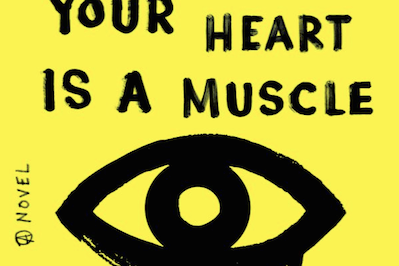
“Your Heart Is a Muscle the Size of Your Fist” A book by Sunil Yapa
The new year explodes with a fantastic debut novel called “Your Heart Is a Muscle the Size of a Fist.” Sunil Yapa, the 38-year-old author, sets his story amid the melee of the Seattle WTO protests in 1999. Indelible coverage of that disaster and all the videos of police brutality around the country since then may have withered our capacity to be shocked, but Yapa’s re-creation of those horrible hours in the Emerald City arrives like a punch in the chest.
Think back to that innocent age before Sept. 11, 2001. On the eve of the millennium, the World Trade Organization Ministerial Conference gathered to usher in a century of expanded economic development. More than 130 countries sent delegates to Seattle; U.N. Secretary General Kofi Annan and President Bill Clinton were scheduled to bask in the glow of international cooperation. But those hopes were incinerated before the meetings could even begin. More than 50,000 environmental and labor protesters, some dressed as vegetables and farm animals, clogged the streets around the conference center, marching, chanting and dancing. Although the activists were overwhelmingly peaceful and well organized, stray acts of vandalism provoked the police, who were unprepared and badly outnumbered. By the end of the first day, the world watched as the screaming city disappeared under clouds of tear gas.
That confrontation could have inspired a latter-day Tom Wolfe like Garth Risk Hallberg to gather up the whole metropolis in all its clamoring chaos. Indeed, that may have been Yapa’s original intention, but his 600-page first draft was lost during a robbery, and the book he is publishing is a taut novel half that length. “Your Heart Is a Muscle” keeps its focus tight as it circulates through the experiences of several characters caught up and crushed by the WTO protests.
At the center of the story is a black teenager named Victor, who provides the story’s emotional core. He ran away from home after his mother died, and in the intervening years he has been wandering the world doing odd jobs and sleeping where he can. Still fogged by “the fever of grief,” he returns to Seattle to find the city swept with a carnival spirit that should provide the perfect market for selling marijuana. But he attracts the attention of an experienced activist, a woman nicknamed Kingfisher, who foolishly enlists him in her cause to shut down the conference. Desperate for any kind of belonging, Victor tags along, repressing his skepticism just to be near her.
Yapa’s single concession to melodrama is that Victor is the stepson of Seattle’s white police chief, Bishop. Shattered by his wife’s death a few years earlier, Chief Bishop turned emotionally brutal toward Victor and drove the boy away in an effort to steel him to the world’s disappointments. But those personal concerns are overwhelmed by the challenge at hand: maintaining the peace, managing tens of thousands of protesters and making sure the WTO delegates can attend their meetings. “The days of community policing were over,” Bishop thinks. “The world was a bottleful of sparkling darkness and the cops the ones charged with keeping the cork in while the rich shook and shook.”
Yapa’s novel presents the voluntary and involuntary participants in this clash as victims of history rent by their fears and affections. Chief Bishop is a good cop, even-tempered and sympathetic, but those admirable qualities may betray him. “He felt a fondness for these people,” Yapa writes, “a kind of love-struck nostalgia for his city.” As the protests ramp up, he dresses down one of his officers, Timothy Park, for being too aggressive. With his “aura of utter and total self-reliance in the teeth of the world,” Officer Park seems like a thug with a badge. After all, he is intemperate, too eager to swing his baton — but that same energy fueled his heroism when the Alfred P. Murrah Federal Building in Oklahoma City blew up. What ultimately will save the greater number of people as civil order boils away? Bishop’s understanding or Park’s aggression?
This isn’t to suggest that Yapa excuses police brutality. On the contrary, before his novel reaches its shattering conclusion, it re-enacts such savage beatings that I expected to wipe drops of blood off my glasses. By following the attenuation of moral responsibility that political leaders depend on, Yapa demonstrates the grotesque process that encourages otherwise good, reasonable people to perfect methods of maiming and blinding peaceful protesters. The real triumph of modern capitalism, the novel suggests, is not the division of labor but the division of atrocity that dissipates the burden of guilt. The final workers in that process are the police: “They pickle the world,” Victor thinks, to “preserve it the way it is.”
The two experienced protesters the novel focuses on are equally conflicted and fascinating. Kingfisher clings to her ideal of “the transformative power of militant nonviolence” at least in part to soothe her remorse for a murder she committed. She knows “revolution was not glamorous,” but she expects it to yield some cleansing blessing. Her mentor promotes a radically pure vision that demands people throw their bodies into the gears of government. But that sacrifice is predicated on a species of moral empathy that the modern state is determined to snuff out. Despite all the protests he has joined, he still wonders, “For the country to change, did blood always have to be spilled?”A glimpse of the delegates provides another facet to this tragedy. Far removed from the commanders of international trade comes Charles Wickramsinghe, the hopeful representative from Sri Lanka (the home of Yapa’s father). Wickramsinghe has survived years of repression in his country, so the ferocity of the Seattle police can’t shock him. He is surprised, though, by the naivete of the protesters determined to “save” little countries such as his by pinching off their only hope for economic development.
What is so enthralling about this novel is its syncopated riff of empathy as the perspective jumps around these participants — some peaceful, some violent, some determined, some incredulous. Constantly moving to “one more story among a thousand such stories,” Yapa creates a fluid sense of the riot as it washes over the city. “Your Heart Is a Muscle the Size of a Fist” ultimately does for the WTO protests what Norman Mailer’s “Armies of the Night” did for the 1967 March on the Pentagon, gathering that confrontation in competing visions of what happened and what it meant.
How, Yapa asks, given the existential challenges we face and the forces arrayed against solving them, can we respond to “the problem of remaining a person yourself, a person who cares. A person who feels. A person who does not hate”?
Ron Charles is the editor of The Washington Post Book World.
©2016, Washington Post Book World Service/Washington Post Writers Group
Your support matters…Independent journalism is under threat and overshadowed by heavily funded mainstream media.
You can help level the playing field. Become a member.
Your tax-deductible contribution keeps us digging beneath the headlines to give you thought-provoking, investigative reporting and analysis that unearths what's really happening- without compromise.
Give today to support our courageous, independent journalists.
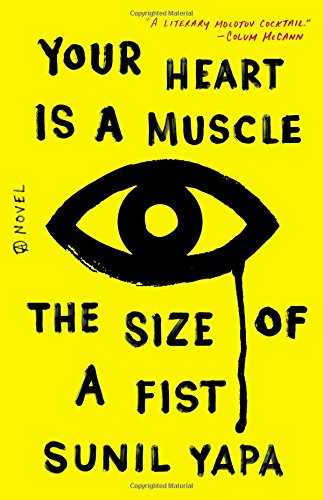

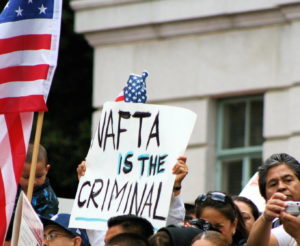
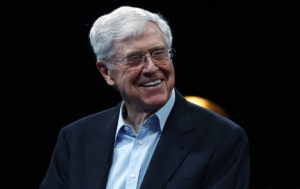
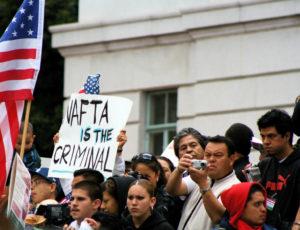
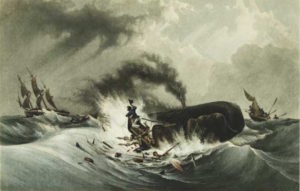
You need to be a supporter to comment.
There are currently no responses to this article.
Be the first to respond.